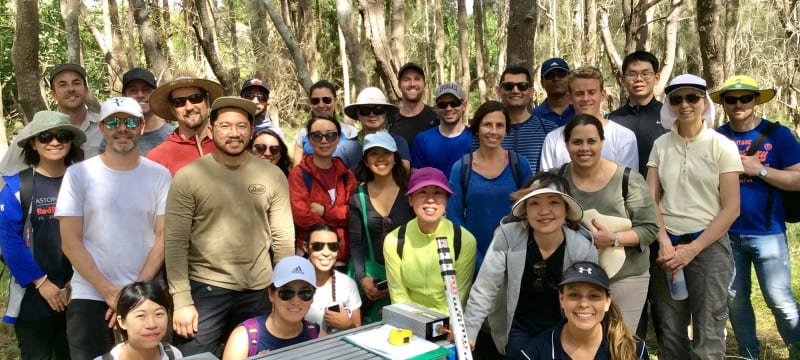Blue Carbon program receives higher education award
27 August 2019
Blue Carbon program receives higher education award
27 August 2019
The Blue Carbon Lab (Deakin University), HSBC and Earthwatch Australia have been awarded an Australian Financial Review (AFR) Higher Education Award for Industry Engagement, recognising a partnership that is addressing how business can play a role in mitigating climate change.
Funded by HSBC, the partnership is delivering a citizen science project that is empowering businesses in Australia and New Zealand to understand how they can invest in a sustainable future, whilst also advancing Blue Carbon Lab’s research on blue carbon reserves stored in coastal ecosystems, and climate change impacts.

Cassandra Nichols, Earthwatch Australia CEO, commented:
“This partnership connects business people with the environment, to better understand how decisions in the boardroom can positively impact climate change and the transition to a low-carbon economy.
“They also contribute to cutting-edge research by Deakin’s Blue Carbon Lab on the remarkable capacity of coastal wetlands to help mitigate climate change, and improve human wellbeing. The program has improved climate change literacy within HSBC and helped employees to get their hands dirty – literally,” she said.
Dr Peter Macreadie, lead scientist for Blue Carbon Lab, added:
“The fact that this program won an award, let alone happened in the first place, would defy most people’s expectations. We were approached by HSBC with an absurd request – to take 500 of their employees and external stakeholders from Sydney, Melbourne and Auckland out of the offices for a day and throw them into nature.
“We jumped at the opportunity to partner with HSBC and Earthwatch Australia. We study coastal wetlands – the armpits of the coast! It’s not every day we get a fresh and fully loaded army of people ready to jump in the mud with us.”
Hamish Kelly, HSBC Head of Global Banking and senior sponsor for the partnership said:
“HSBC has committed to invest at least USD100bn into sustainable finance by 2025. It’s important for our people to understand the opportunities and risks as we actively seek to transition to a low-carbon economy. This partnership allows us increase this understanding, while our citizen scientists have contributed to more resilient ecosystems and carbon sinks.”

